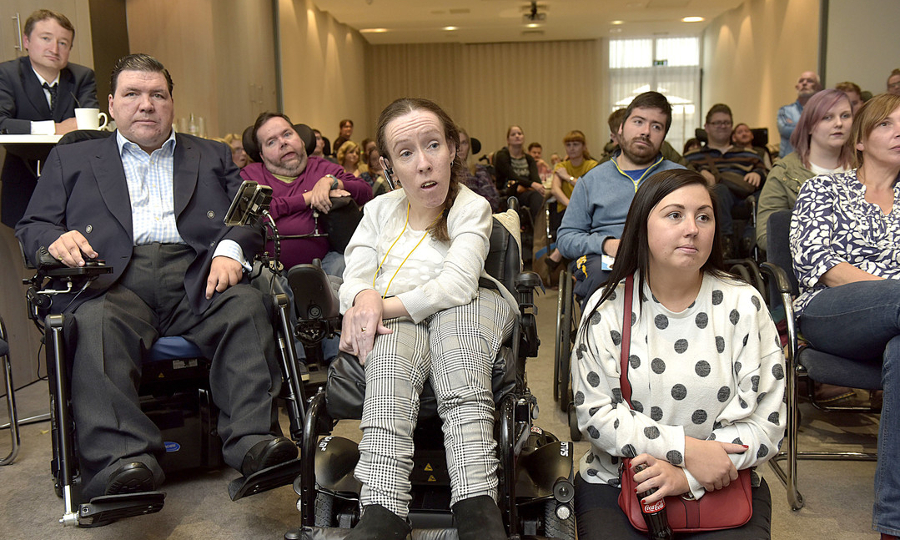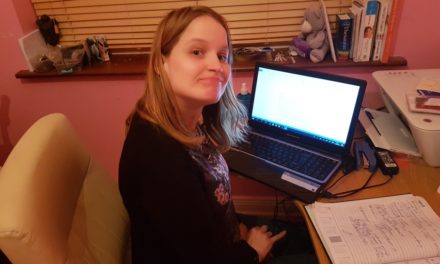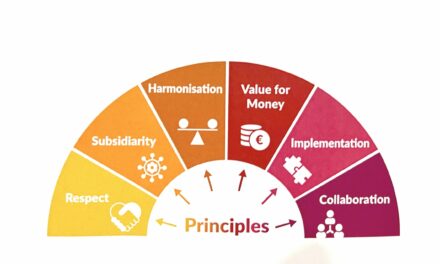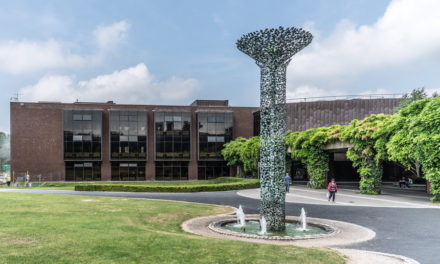As the Centre for Independent Living unveils a new name, Allen Meagher looks at why the organisation won’t be changing much else.
The Centre for Independent Living was established in 1992 and is based in Carmichael House, Dublin, but you won’t hear much more about it. As a brand, the name is history.
While its work will be continued by the same organisation, it has rebranded itself as the Independent Living Movement Ireland (ILMI). A new logo and website have been launched emphasising freedom, rights and empowerment.
It will be run “by and for people with disabilities with the main aim of ensuring that people with disabilities achieve independent living, choice and control over their lives and full participation in society as equal citizens”.
It’s not unusual for groups to change their name. Community Work Ireland used to be the Community Worker’s Co-op until it changed its name in 2015. Pobal was called Area Development Management from 1992 to 2006.
Launching the new look for the 26-year-old organisation, ILMI chairperson Shelly Gaynor said, “We are a campaigning, national representative organisation that promotes the philosophy of independent living and to build an inclusive society. Central to the way we work is to ensure that policy decisions that impact on the lives of disabled people have to be directly influenced by those whose lives are directly affected.
“Our philosophy can be summed up as: ‘Nothing about us without us!’ and ‘Rights, Not Charity’.”
Those have, in fairness, been how genuine disability activist organisations led by community development principles have behaved for decades now.
“Our vision is an Ireland where disabled persons have freedom, choice and control over all aspects of their lives and can fully participate in an inclusive society as equals,” she said.
Speaking at the launch, Ms Gaynor said: “Central to disabled people achieving equality and having their human rights protected is the principle ‘Nothing about us without us’.”
“Independent Living Movement Ireland is about building a collective, grassroots organisation across the island of Ireland,” she said.
She said they wanted to become the voice for people with disabilities in the development of policies and practices based on lived experience.
“We are the experts in our own lives, we know what needs to change and, in ILMI, we will build an organisation that empowers disabled people to collectively lobby and campaign for that change,” said Ms Gaynor.
At the launch of the ILMI, Minister of State for Disability Issues Finian McGrath TD said, “Having ratified the UN Convention on the Rights of Disabled People, it is vital to recognise the role of Disabled People’s Organisations to monitor the implementation of the Convention.”
“I congratulate ILMI on their new strategic plan and wish them success on building on the legacy of the Centre for Independent Living.”
Strong collective voice
As part of the launch of the new strategic plan and website, ILMI delegates at the conference discussed strategies for building a strong collective voice in campaigning for change.
Ms Gaynor said, “Our strategic plan will focus on the four pillars of Independent Living over the next three years: personal assistance, housing, transport and employment. We’ve begun engaging disabled people across the country to campaign for a real personal assistance service.”
She said, “The personal assistance service is a key tool that allows many disabled people to live independently. It needs to be defined that it is led by disabled people not service providers. It needs legislative protection. It needs to be invested in to ensure people can get the hours they need to live independently and it needs to be promoted.
“Our new strategic plan is based on three core objectives: leadership and representation; equality and human rights; and strategic political campaigning.”
She said the plan seeks to build a grassroots collective approach, where disabled people across the country are active participants in the movement and are empowered to be part of policy development and political campaigns. The movement will be led by disabled people.
“People are stronger together, and a collective voice can be heard,” said ILMI CEO Damien Walshe. “Building a movement for change needs disabled people to become actively involved and see ILMI as a vehicle for getting involved in collective action.”
The ILMI believes in a rights-based social model of disability. It will challenge the unacceptable charity/medical model of disability.
“We are working towards the removal of societal barriers that prevent active equal participation of disabled people and we are challenging the denial of people’s rights and the promotion of the philosophy of independent living,” said Mr Walshe.
The ILMI is keen to build relationships with people across the country and also with organisations supporting disabled people, particularly ones providing support through the SICAP programme.
For more information, see www.ilmi.ie or email info@ilmi.ie.
Interested in reading more about the state of Ireland’s community development sector? Check out our latest issue.





